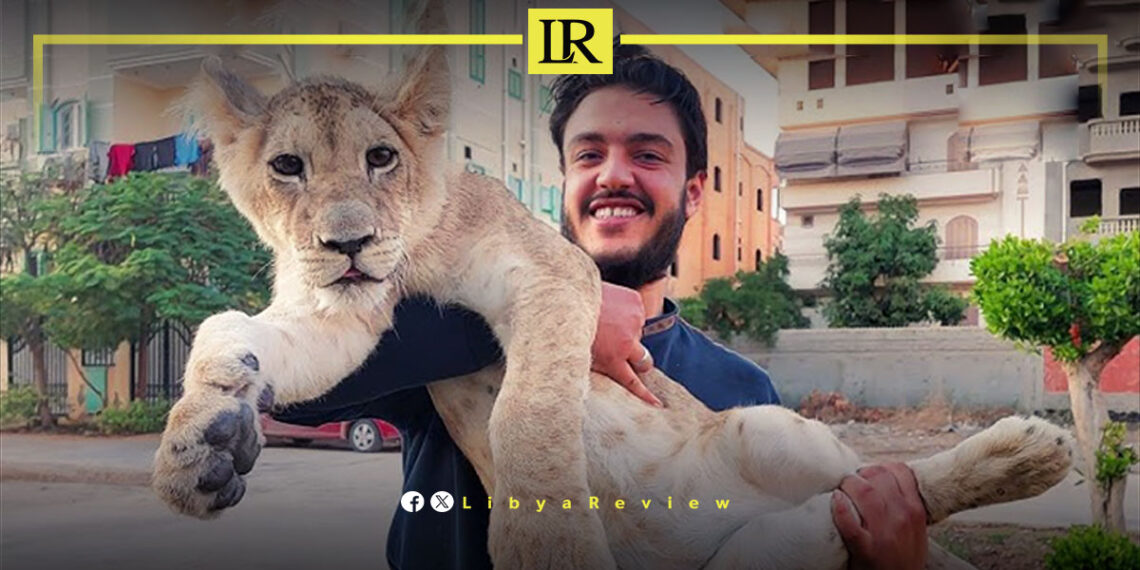Libya has witnessed a disturbing series of incidents involving the keeping of wild animals—particularly lions—which have shifted from being symbols of prestige or entertainment to becoming a direct threat to public safety.
The most recent case occurred on July 3, 2025, when a farm owner in Tripoli unleashed a lion on a group of workers. A viral video showed the workers’ terror as the animal charged, while the cameraman’s laughter fueled public outrage.
In December 2024, a wedding in Tripoli descended into chaos after a lion escaped from its owner and attacked guests, sparking renewed calls for tougher laws.
Perhaps the most tragic incident happened in July 2024, when a lion fatally mauled a child on a farm in Ajdabiya. The tragedy prompted eastern authorities to issue an emergency decree banning the private ownership of predatory animals.
Yet the phenomenon persisted. In April 2024, a tiger escaped in Misrata, causing panic after security forces failed to track it down. The roots of the crisis go back to December 2022, when lions in Benghazi killed a farm worker—an incident that first reignited debate about the risks of the practice.
Public Outcry and Social Consequences
Libyan activists have described these incidents as reckless endangerment of innocent lives. Many argue that lions and tigers belong in zoos or reserves, not residential neighborhoods. Child and environmental advocates have called for the immediate confiscation of all privately owned wild animals.
Observers note that the trend reflects a culture of “showmanship,” where some view keeping lions and tigers as a status symbol or display of power, disregarding the dangers. Weak oversight and inadequate legislation have fueled this culture, with viral social media clips featuring wild animals used as trophies of prestige.
A Threat to Public Security
Beyond the danger to individuals, analysts warn that these incidents undermine the image of state authority. The inability to control wild animals roaming communities projects weakness in law enforcement, feeding public distrust in government institutions and raising concerns about broader instability.
With incidents mounting between 2022 and 2025, the absence of comprehensive national legislation remains a major gap. Many now look to the Attorney General to investigate such cases as crimes of endangering lives, and to Parliament to enact a law banning the ownership of wild animals and enforcing strict mechanisms for their confiscation—before another tragedy turns “entertainment” into irreversible disaster.


